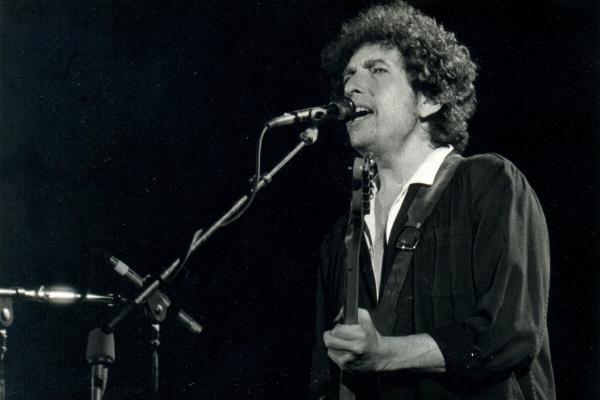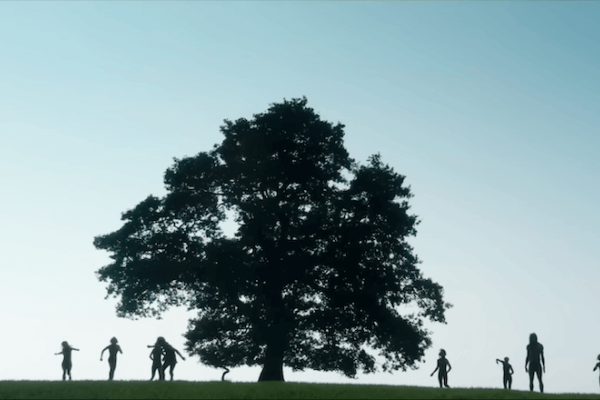In 1966, John Lennon wondered which would go first, Christianity or rock music. He quipped that the Beatles were certainly more popular than Jesus.
In 1978, Bob Dylan was “born again” and the Beatles had broken up.
The most important artists of the era provide uneven bookmarks to the cultural politics of the heady decade of “the sixties,” which really spanned from the mid-'60s to mid-'70s.
For the discontents of the long decade of the '60s, liberals were actually libertines who had gained control of the powerful machinations of the state and culture. They used Great Society programs and rock n’ roll to change the politics and culture of the nation. Music and government subverted “tradition” and encouraged racial equality, women’s rights, gay rights, and economic fairness, which challenged the church and the family.
This is what made Dylan’s conversion in the late '70s so interesting. A leading rock star of the era had found Jesus and would release a trilogy of Christian albums that dealt with themes of salvation, religious persecution, purity, and the futility of politics.
But Dylan’s Christianity was markedly out of step with that of the dominant themes of the previous era. He was not a Jesus Freak, the movement of the street Christians and coffee houses that began in the Haigh-Ashbury district of San Francisco during the Summer of Love in 1967 and spread across the nation. He was not appropriating mainstream hipness and adapting its cultural productions in order to make Christianity more palatable or approachable. He steered clear of the Jesus-as-radical tradition. Neither was his understanding of the gospel similar to the emancipationist and liberationist interpretations of Civil Rights activists. In his trilogy, he was not recording the soundtrack to Martin Luther King Jr.’s dream.
Dylan’s Christianity had less in common with Jesse Jackson’s and had more in common with Jerry Falwell’s. It fit comfortably within the perspectives of a reactionary Christianity that blamed liberalism and the Civil Rights movement for the nation’s religious, moral, and economic decline. The end times were near and the nation needed to prepare for God’s wrath.
Dylan’s first Christian album was Slow Train Coming in 1979 and the first track, “Gotta Serve Somebody,” established that in the larger ongoing spiritual warfare that was occurring, everyone was going to either have to choose to follow the righteous path of the Lord or the crooked road of the devil. This theme was repeated in the song “Precious Angel,” when Dylan sings, “now there’s spiritual warfare and flesh and blood breaking down / Ya either got faith or ya got unbelief and their ain’t no neutral ground / the enemy is subtle, how be it we are so deceived / when the truth’s in our hearts and we still don’t believe?”
The lyrics of the album revealed a deep political and cultural conservatism. The two were intertwined. Dylan professed a deep suspicion for politics and government. In “When You Gonna Wake Up,” he sings, “counterfeited philosophies have polluted all your thoughts / Karl Marx has got ya by the throat, Henry Kissinger’s got you tied up in knots. / When you gonna wake up, when you gonna wake up?” Later in the song, he links the lack of peace on earth to secular governments and cultural change: “You got men who can’t hold their peace and woman who can’t control their tongues.”
The reception of Dylan’s first album was uneven and many fans disapproved of the new material. Dylan often preached during the tour and refused to play earlier hits and fans reacted by walking out.
This did not faze Dylan. In 1980, he released another album with an even more overt title: Saved. The dominant themes of the second album remained similar to the first but there was a change in sound. This was a gospel album, backed by African-American gospel singers and recorded in the famed Muscle Shoals studio in Alabama. The shift to gospel was mere artifice. It was not connected to an African-American religious tradition, but a decidedly white and conservative one. This was Dylan parading his ideas in costume, in musical blackface. For much of the 20th century, African Americans worked to convince white Americans that racial and economic equality were socially right and biblically righteous. These ideas were imbedded in their musical traditions. Dylan ignored all of this.
Songs like “Saving Grace” and “Are You Ready” repeated a conservative eschatology. Dylan sings, “Are you ready for the judgement? / Are you ready for that terrible swift sword? / Are you ready for Armageddon? / Are you ready for the day of the Lord? / Are you ready, I hope you’re ready.” The end of times was near and God was going to judge the nations, not for their social sins, but for straying from the straight and narrow of that old time religion.
In addition, the album repeated ideas that feminism and the sexual revolution had altered the foundational gender roles that divided men and women to detriment of church and nation. In “Covenant Woman,” he extols the virtues of modest, reticent, supporting women. Good Christian women shined like a “morning star,” were “intimate little girls” and waited patiently because their rewards were in heaven.
The 1981 album, Shot of Love alternated between gospel and rock. It continued the apocalyptic prophecies that linked promiscuity and politics in the other two albums. In “Dead Man, Dead Man,” Dylan described how culture and politics mixed as the fusion of “the Glamour ad, the bright lights, and the politics of sin.” In the song “Trouble,” he connected international problem like global famine and environmental change to people going to nightclubs and relying on morally corrupted politicians. He sings:
Drought and starvation, packaging of the soul
Persecution, execution, governments out of control
You can see the writing on the wall inviting trouble.[…]
Nightclubs of the broken-hearted, stadiums of the damned
Legislature, perverted nature, doors that are rudely slammed
Look into infinity, all you see is trouble.Trouble
Trouble, trouble, trouble
Nothing but trouble.
Shot of Love also introduced a theme of evangelical Christian persecution. Perhaps because of the boos of fans in concerts and the critical condemnation of his albums, Dylan felt he was being ostracized because of his faith. The song “Property of Jesus” is a 4-minute lament of the travails of man who is mocked because of his belief. People “laugh at him behind his back.” He’s told he’s a “loser” for his faith. They make fun of his clothing. But he doesn’t mind because he’s “the property of Jesus.”
While Dylan’s Christian conversion didn’t last, the conversion of American Christianity certainly did. It was a strange moment in the culture wars of the post-1970s, when one of the world’s most famous rock stars became conservative Christianity’s most famous musician. It was also a moment when the call of Christians to change the world was detached from progressive social and economic projects and linked to conservative ones that worried more about morality, sexuality, and culture.
Dylan’s Christianity was markedly out of step with his peers at the time, but his popular remaking of the old-time religion was prescient and telling. His emphasis on the apocalypse foreshadowed the popularity of Pat Robertson’s The 700 Club and Tim LaHaye and Jerry B. Jenkins’ Left Behind series. Dylan’s conservative reaction to shifting gender roles in his albums also prefigured Joshua Harris’I Kissed Dating Goodbye and Wendy Shalit’s A Return to Modesty. Strangely enough, his musical influence and imprimatur on Christian music was not long felt or long lasting.
Got something to say about what you're reading? We value your feedback!







